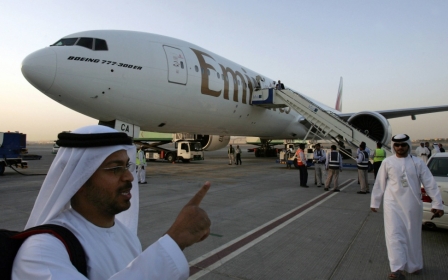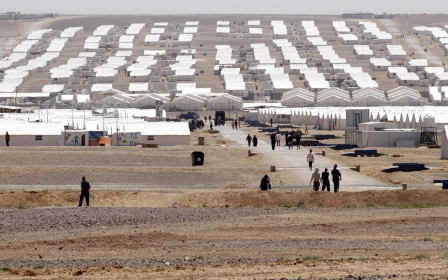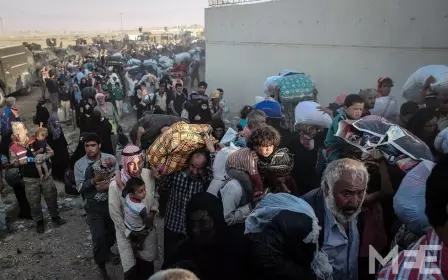Syrian refugee and son denied entry to Morocco, stuck in Casablanca airport

A Syrian refugee and his 10-year-old son have been stuck in an airport in Casablanca for around 24 hours after Moroccan authorities denied them entry, Middle East Eye learned on Monday.
Bashar Jalabi, 38, is married to a Moroccan woman and has legal residency in the country, he told MEE via telephone. Jalabi recently travelled to Turkey where his son from a previous marriage has been living with a Syrian family, in order to bring him back to Morocco. The boy’s mother died years ago.
The father and son departed Turkey and arrived at the Casablanca airport late on Sunday, when Moroccan immigration officials told them they could not enter the country given that Jabali’s son Haider does not have a Moroccan residency permit, Jalabi said.
He had tried to obtain a permit for his son twice from the Moroccan embassy in Beirut, but after being denied both times he decided to attempt to bring his son back to Morocco anyway.
The Moroccan authorities told them upon arrival in Casablanca that they would have to return to Turkey. However, Jalabi says this is not possible because Haider’s residency permit is expired and according to Turkish policy he will now have to wait five years before he is allowed to return to the country.
“I don’t know what’s going to happen,” Jalabi said. He fears he may be forced to return to Syria, where he defected from the Syrian army and is now wanted by the Assad government.
Jalabi is originally from the city of Homs in western Syria, he told MEE. At the start of the Syrian revolution in 2011, he joined the Free Syrian Army (FSA) and was stationed in the city of Raqqa. However, he fled for Turkey before the Islamic State (IS) group took over and proclaimed Raqqa the capital of its caliphate.
If I go back to Syria 'they will kill me'
From Turkey, Jalabi travelled to Morocco to be with his second wife, who had been living in Syria before the start of the revolution. He obtained residency and found work in Morocco, where the two have been living with their three-year-old son.
“How can I go back to Syria, me and my 10-year-old son? I am wanted by the regime," he said. "They will kill me.”
It is unlikely that Turkey will deport Jalabi and Haider back to Syria – such a Turkish policy for refugees has yet to be seen. However, Lebanon and Jordan have been known to implement such policies. But even if the two were allowed back in Turkey under some exception to its residency rules, this would not be a viable solution for Jalabi, who needs to provide for his three-year-old son. His Moroccan wife is now also five months pregnant with another child.
For now, Jalabi and Haider are beginning their second day in the Casablanca airport, still without their passports and with nowhere to sleep.
“My son is angry with me,” Jalabi told MEE. “He says it’s my fault that we are in this situation because I was the one who took him from Turkey to here, to this airport, where he has to sleep on the floor.
“I don’t have anything soft for him to sleep on,” he said. “And food and water are very expensive.”
Jalabi says he has reached out to a lawyer and to various human rights organisations, but has yet to hear anything positive.
In May, MEE reported on a similar story to Jalabi’s – in which a Palestinian-Syrian refugee and his son were stuck in limbo in Dubai International Airport for two weeks before being flown to Jordan, where they faced deportation to Syria. However, amid media coverage and international pressure, Jordan has not carried out the deportation.
According to the UN Refugee Agency (UNHCR), nearly four million Syrians have registered as refugees after fleeing the ongoing turmoil in their home country.
Middle East Eye propose une couverture et une analyse indépendantes et incomparables du Moyen-Orient, de l’Afrique du Nord et d’autres régions du monde. Pour en savoir plus sur la reprise de ce contenu et les frais qui s’appliquent, veuillez remplir ce formulaire [en anglais]. Pour en savoir plus sur MEE, cliquez ici [en anglais].




